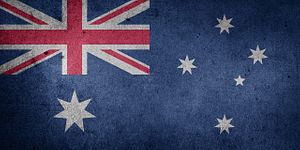Australia should act swiftly to enact a U.S. Magnitsky-like sanctions regime.
As recommended by a parliamentary committee in December last year, advancing new stand-alone laws would build on international momentum and place an increased focus on the perpetrators of serious human rights abuses and grand corruption – including on their families and direct beneficiaries.
The global spate of recent human rights abuses demonstrates the need for such laws. The ongoing military coup in Myanmar and the Russian state-backed poisoning and arrest of opposition leader Alexei Navalny are just the latest reminders.
Activists have also singled out the need for targeted sanctions following the continued repression of Uyghurs in Xinjiang and the erosion of Hong Kong’s autonomy. However, advancing a new sanctions regime now would likely irk an already vindictive China.
While the Morrison government has so far refused to blink under the pressure of Beijing’s use of political and economic coercion, privately it may contemplate the risk that further actions could inflame existing tensions.
The impetus falls on the government to carefully navigate, but not stall, the advancement of Magnitsky-like laws. This should come with the vocal support of allies that have already passed such laws, including Canada, the United Kingdom, the United States, and the European Union.
At present, Australia’s autonomous sanctions regime does provide the ability to implement targeted sanctions. But advocates of Magnitsky-like laws, such as Human Rights Watch, have labelled the existing framework “opaque” and argue that it does not result in sufficient emphasis on human rights concerns.
The strength of Magnitsky-like laws is predicated on its collective enforcement and highly specific focus. It expressly aims to bar human rights offenders from entering the country and seizes their assets, effectively decoupling them from the global system that benefits both their own and their authoritarian regime’s interests.
It is a modernized and sharp foreign policy tool. Senator Kimberly Kitching, who has been championing the introduction of Magnitsky-like laws in Australia, argued that “these laws are designed to be a surgical tool rather than a blunt instrument, and would be an important addition to our existing legislative framework in helping to defend our democratic institutions.”
Bill Browder, who led the push for the original U.S. Magnitsky Act, said that while “most governments around the world are focused on the COVID crisis, dictators are dramatically ratcheting up their abusive actions.” He added that the Magnitsky Act has proven to be one of the best ways of dealing with human rights abusers and corruption as it targets “individual bad actors while leaving the populations alone.”
Browder has previously pointed to the need to collectively sanction Chinese officials for their roles in the persecution of Uyghurs in Xinjiang. The United States has already acted here, notably sanctioning high ranking Chinese Communist Party officials Chen Quanguo and Zhu Hailun, the latter being referred to as the “architect of mass detention in Xinjiang.”
Momentum continues to move toward strong action on human rights abuses globally. In the United Kingdom, Prime Minister Boris Johnson is in the midst of a human rights storm with many government MPs supportive of allowing the British courts to determine whether genocide is being carried out in Xinjiang; which would create significant difficulties for advancing a U.K.-China trade deal.
The recent arrest of Russian opposition politician Alexei Navalny serves as another poignant reminder of the need and value of a new sharp foreign policy tool. Sanctions are being discussed in the EU, U.K., and U.S. now.
Greater sanctions harmonization should be priority for all countries with Magnitsky-like laws, but Australia needs get to the table first.
The committee report tabled in December includes draft legislation by well-regarded international human rights lawyer Geoffrey Robertson QC, helping lay the initial foundations.
Importantly, among the 33 recommendations, it also states that the Department of Foreign Affairs and Trade should be provided additional resources to implement the new sanction regime.
Momentum pushes the Morrison government toward acting now and joining like-minded allies in tackling, collectively, the scourge of corruption and human rights abusers that wear at the fragile foundations of liberal democracies around the world.
Philip Citowicki is a foreign policy commentator and was an advisor to former Australian Foreign Minister Julie Bishop.
































